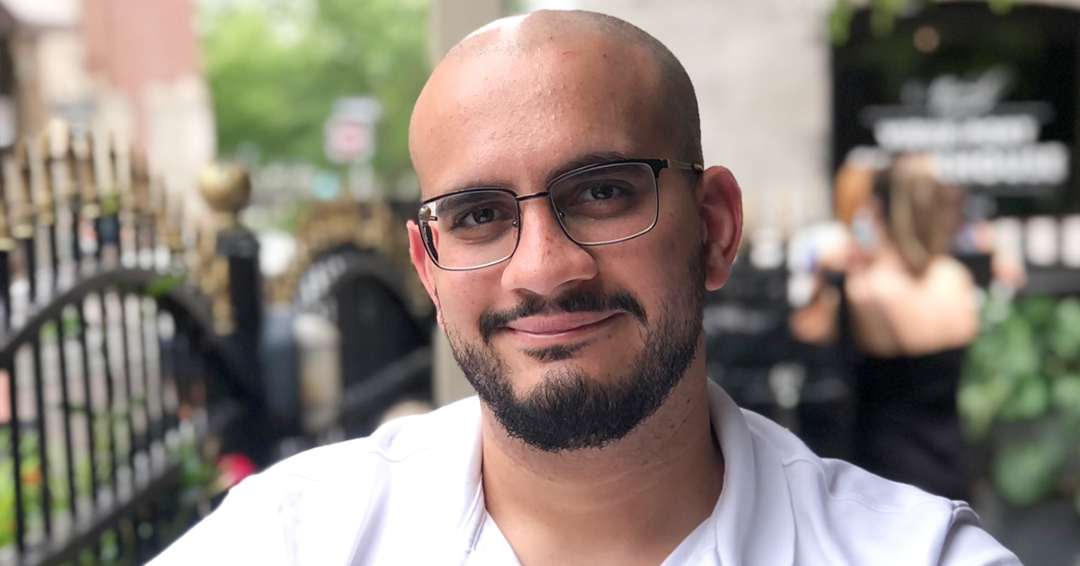
Research Area: Mouse models of breast cancer
Department: Biochemistry
Faculty supervisor: Dr. William Muller
Tell us a bit about yourself:
I was born in Cairo, Egypt and moved to Canada in 2014. I joined Concordia University in 2015 to do a bachelor’s degree in biology. In 2017 I joined Dr. Muller’s lab as a graduate student and in 2019 did a fast track to become a PhD student.
- Congratulations on your nomination as co-president of the Goodman Cancer Student Society. Why did you put yourself forward? What do you hope to achieve?
My goal is to achieve something that is long lasting and one of my priorities is to invest more into health and wellness. As graduate students we have a heavy workload, and our mental health often suffers as a consequence. I think it’s important to step away and disconnect from our daily routine sometimes. I’d like to create open spaces where we can just relax or even propose a relaxation week where we do just that.
I’m also very happy that we’ve created a new EDI (Equity, Diversity, and Inclusion) committee where we will have discussions around accessibility and representation – we want everyone to feel welcome here at the Goodman Cancer Institute.
- Tell me about your research. What are your most interesting findings?
Our lab develops genetically engineered mouse models (GEMMs) to study mammary tumourigenesis, tumour progression and metastasis. The MICAM (McGill Integrated Core for Animal Modeling) facility is therefore a cornerstone in our research, and we’re so thankful to have it on our premises.
Recently we have identified several immunomodulatory molecules that we believe, if exploited clinically, can allow the host immune system to clear tumors and metastatic lesions. This could have a big impact on therapy and patient survival.
We’re also collaborating with Brown University, in the U.S., the University of Helsinki in Finland and l’Université de Montreal who have all provided us with essential reagents, samples and technical expertise that has contributed significantly to our work.
- Why did you decide to go into cancer research?
I find cancer a fascinating phenomenon. We often have a perception of what cancer is like, but science often breaks down those barriers. For instance, recent work has emphasized the role of non-cancer cells in the tumour microenvironment that are essential for growth and metastatic dissemination. Science also shows that tumours are tightly regulated systems that consume energy, deliver nutrients, and regulate our immune systems. Cancer research is an interesting field to study and at lot of phenomena are applicable with many other medical research fields.
- What have you learnt about yourself since the pandemic?
I’ve learnt that I like staying home. I thought I was sociable but now, if I had the choice of going out or staying in, I’d pick staying in!
5. How would you describe your overall experience at the Goodman Cancer Institute?
It’s a friendly place. The fact that we get to call some of the Principal Investigators by their first names shows how friendly everyone is with each other! It’s a welcoming environment, the facilities are outstanding, and the research is obviously interesting too.
6. What are your future plans?
I like the research field so I would like to pursue with post-doctoral studies in the U.S., in Boston. Another option is to apply to medical school and pursue a MD-PhD career path.
Sherif can be reached via:

